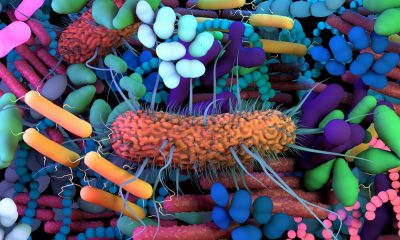There is a mental health crisis brewing that currently far outweighs the Covid Pandemic. People with mental health issues brought on by substance misuse are being ignored as governments spend billions on Covid health and relief measures.
An urgent and fresh approach is needed to tackle addiction amongst the mentally ill, who are losing the battle against substance abuse. The number of deaths from drug addiction has risen alarmingly, topping the 100,000 mark in the US alone in 2021. Data from the CDC’s National Center for Health Statistics show an increase of almost 30% in drug overdose deaths.
Looking at Addiction with A Fresh Pair of Eyes
Founder and CEO of The Resilient Mind Network, Nelson Quinones believes that a fresh approach to the way we consider, look at, and treat addiction is urgently needed: “Addiction isn’t caused by drugs. It’s caused by unresolved trauma and shame. As long as we blame the victim, we’ll never be able to find out the real cause,” Quinones said.
Life coach, motivational speaker, host of the ‘Beautiful Ironies’ podcast, and author of his new book: “Four Into Twelve Gives Three,” Quinones speaks about addiction from experience. He is a crystal meth addict and HIV survivor, who has managed to overcome his demons, and become a certified life coach, helping others to overcome their sources of shame and fear, especially in relation to addiction.
Through his Resilient Mind Network, he helps others like himself through the labyrinth of addiction, mental health, and anxiety by providing a place where people can access helpful resources, feel encouraged by positive messages and interaction with others, and gain insight into the complexity that is their addiction.
Addiction: A Complex Biological and Social Issue
Studies have shown that substance use disorders are actually chronic medical conditions involving the disruption of key brain functions – indicating the intricate, yet formidable connection between mental health issues and addiction. Addiction has complex biological and social factors affecting and exacerbating psychological issues. It’s made even more complicated by the fact that most sufferers exhibit different actions and reactions to substance use.
Prevention: A Step in the Right Direction
In the US, there are ample prevention programs and policies based on well-intentioned principles. A good prevention program should enhance protection and reverse or reduce risk of addiction. It should include concise resources to educate people against all forms of addiction and drug abuse, including legal substances.
Most importantly, any program should succinctly address the exact needs of the community it is serving. Essentially, more money should be spent on prevention programs, as they have been shown to facilitate recovery.
Recovery Support: A Crucial Necessity
Access to services that support recovery is tantamount to the success of overcoming addiction and mental health issues. Resources like Quinones’ Resilient Mind Network are easily accessible online and support is readily available to people in need.
Long-standing recovery support programs like Alcoholics Anonymous, Narcotics Anonymous and various counseling centers are always in need of financial support, and hope to gain some more funding as Covid spending peters out. These services have been proven to help former substance users and sufferers of mental illness achieve and sustain long-term wellness.
A Holistic Approach
Holistic approaches to addiction and mental illness are rising in popularity in the US, mainly due to the non-medicinal recovery methods employed by practitioners and support counselors. Holistic addiction therapies involve focusing on an individual’s wellbeing, aiming to bring into alignment the mind, body and spirit. It complements traditional treatment practices which involve exercise, meditation and carefully considered nutrition.
Holistic rehab programs integrate ‘whole being’ philosophies in order to target the exact pain points of an individual. Over the years, holistic treatment regimens have become extraordinary sources of support for addicts and people suffering from mental illness.
“The mental health crisis in America is at an all time high and the prevalence of overdoses is escalating to such an alarming degree. Current treatments simply aren’t working, and funding is not available to the degree it should be,” said Quinones. “My holistic approach to self-improvement and care has produced great results in treating symptoms of addiction and withdrawal. Holistic therapy certainly worked for me,“ he added.
Why is Funding an Issue?
In the US, treatment programs traditionally rely on concise funding streams consisting of block grants, Medicaid reimbursement and State funds. These are meant to provide treatment within the context of associated needs and services like job training and procurement, child protective services and criminal justice.
The main struggle treatment resource centers and service providers have is with the additional issues that arise from treatment. People need housing, child care, protection, medical care, and jobs. While public funds are available for these services, they are often not enough, and providers often have to rely on private funding streams and donations.
A Final Thought
There is no greater resource than the knowledge and experience of a recovering sufferer. People like Nelson Quinones have been instrumental in reaching out to those in need, utilizing digital media and literature to provide access to much needed information and care. With the world slowly moving back to normal, the hope is that focus will be placed back on to people in need of genuine help.
















